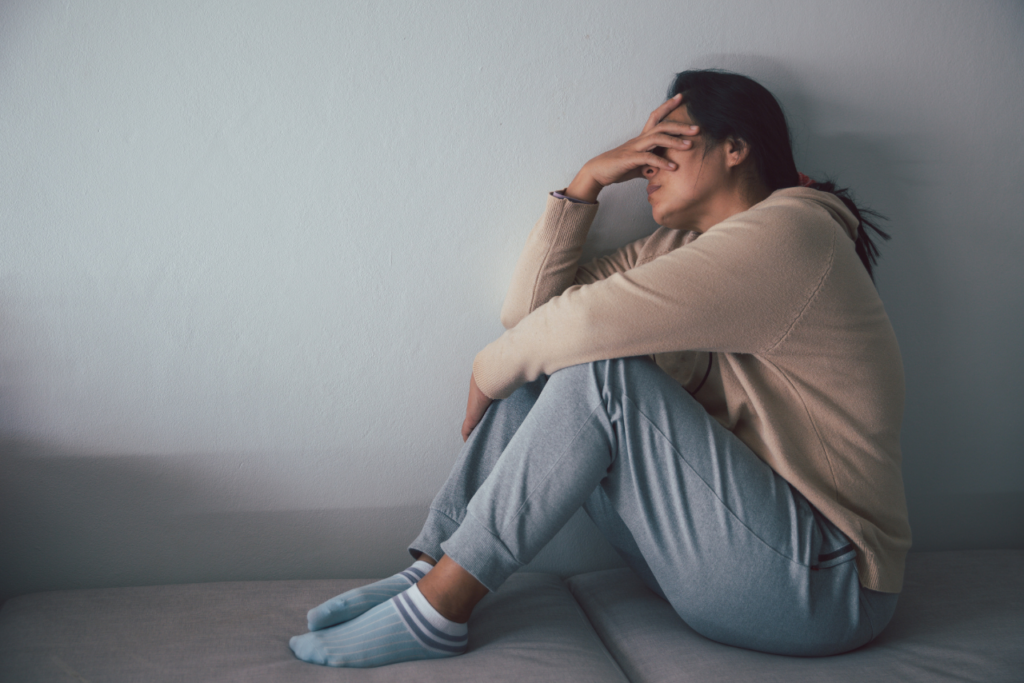Finding the right antidepressant and determining the most effective dosage level can involve a bit of trial and error. To ensure you’re receiving maximum benefit from the medication you’re taking, you and your doctor need to keep a close eye on several factors. For example, if your symptoms don’t change or you start to develop side effects, these could be signs your antidepressant dose is too low.
If you’re concerned that your antidepressant dose may be too low, don’t hesitate to reach out for help. Call us today to discuss your depression symptoms and explore personalized treatment options that can support your mental well-being.

Signs Your Antidepressant Dose Is Too Low
Depending on which medication you are taking, it can take several weeks before an antidepressant begins to have a noticeable effect. Once the med has had adequate time to start working, the following could be signs that your antidepressant dose it too low:
- You’ve been taking the antidepressant for an appropriate amount of time, but you haven’t noticed any improvements. Before trying a different medication, your doctor may recommend increasing your daily intake.
- The medication worked for a while, but you’ve begun to experience a recurrence or intensification of symptoms. This could mean that you have begun to develop tolerance to the medication. If you aren’t already taking the maximum recommended daily amount, your doctor may address this by increasing your dosage.
- Your symptoms have become progressively worse since you started taking the antidepressant. Even at low dosage levels, some antidepressants can have a negative impact on some people. In a case like this, your doctor may adjust your dosage or switch you to a different type of antidepressant.
- You have developed new symptoms, such as thoughts of suicide or self-harm. Some people unfortunately experience increased suicidal ideation when they start to take a new antidepressant. If this happens to you, you should contact your doctor immediately.
Important note: If you believe that you are at imminent risk of suicide, you can get help 24/7 by calling 988 (U.S. only) or visiting the 988 Suicide & Crisis Lifeline website.
What To Do If Your Antidepressant Isn’t Working
If you’ve noticed signs your antidepressant dose is too low, or your otherwise unsatisfied with the medication, you shouldn’t make any changes without first speaking with the doctor who prescribed it. Depending on what you’ve been experiencing, your doctor may recommend options such as:
- Altering your dosage level
- Replacing the medication you’ve been taking with a different antidepressant
- Staying with the med you’re currently taking, and adding another one
- Ending your medication use
- Exploring alternatives that may yield better results for you
To reiterate: You should never alter your dosage level, stop taking your antidepressant, or start taking another medication without first consulting with a qualified professional. Taking any of these steps on your own could erode your quality of life and put your health at risk.
Alternatives to Antidepressants
Medication is just one of several options for alleviating the symptoms of depression. Many people also benefit from services such as:
Psychotherapy
Commonly referred to as “talk therapy,” this is a general term that encompasses a wide range of approaches and modalities, such as the two we’ll address later in this list. Depending on your needs and goals, you may benefit from taking part in individual, group, and/or family psychotherapy sessions.
Cognitive behavioral therapy (CBT)
This is a short-term, goal-directed form of psychotherapy that is based in part on the view that many psychological problems result from maladaptive thoughts and self-defeating behaviors. CBT sessions can help you identify how these factors have affected your life, then guide you through the process of developing healthier ways of thinking and acting.
Dialectical behavior therapy (DBT)
This is a skills-based approach that can help you improve your abilities in four key areas. DBT sessions focus on mindfulness, distress tolerance, emotion regulation, and interpersonal effectiveness. In addition to participating in both individual and group therapy, DBT patients also typically complete brief exercises on their own, between sessions.
Transcranial magnetic stimulation (TMS) therapy
TMS uses the focused application of electromagnetic pulses to stimulate areas of the brain that may be related to depression symptoms. TMS first earned FDA approval for depression treatment in 2008. Through the years, it has proved to be a safe and effective service for patients whose symptoms didn’t respond to other interventions.
Effective treatment for depression can look very different from one patient to the next. For some people, medication alone provides the relief they’re seeking. Others respond better to therapy, while some are best served by a combination of medication, therapy, and other support services.
There’s no single medication, therapeutic approach, or support service that works for everyone. This underscores the importance of finding a treatment provider who will take the time to fully assess your needs, then develop a customized plan just for you.

Learn More About Depression Treatment in Atlanta
Valor Behavioral Health is a leading provider of personalized outpatient treatment for people who have been living with depression and other mental health concerns.
Our continuum of care includes a partial hospitalization program (PHP), an intensive outpatient program (IOP), adolescent program and an outpatient program (OP).
In each of these programs, you or your child can expect to receive focused, age-appropriate services, provided by a team of highly skilled and compassionate professionals. We understand the many ways that untreated depression can prevent you from living the life you deserve, and we are committed to developing customized solutions that can yield lifelong benefits. To learn more about our depression treatment center in Atlanta, Georgia, or to schedule a free assessment, please visit our admissions page or call us today.













